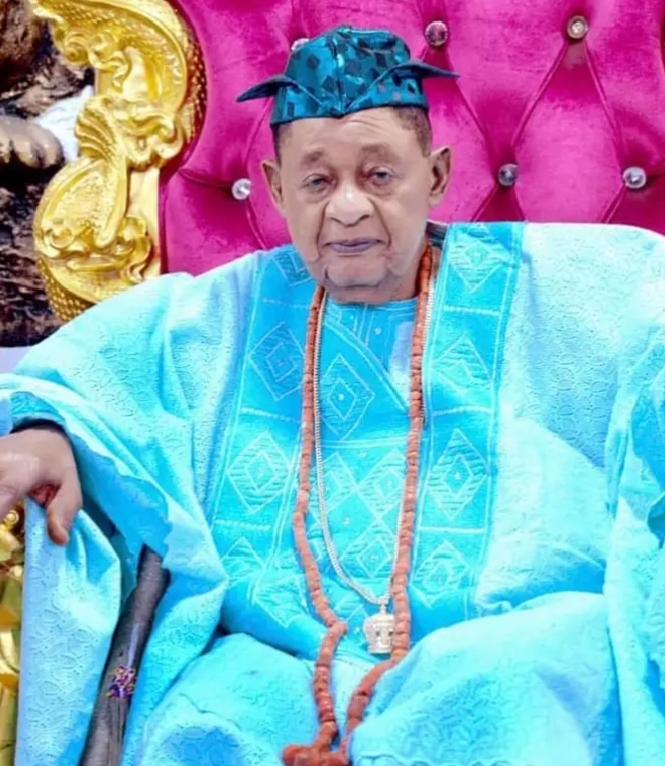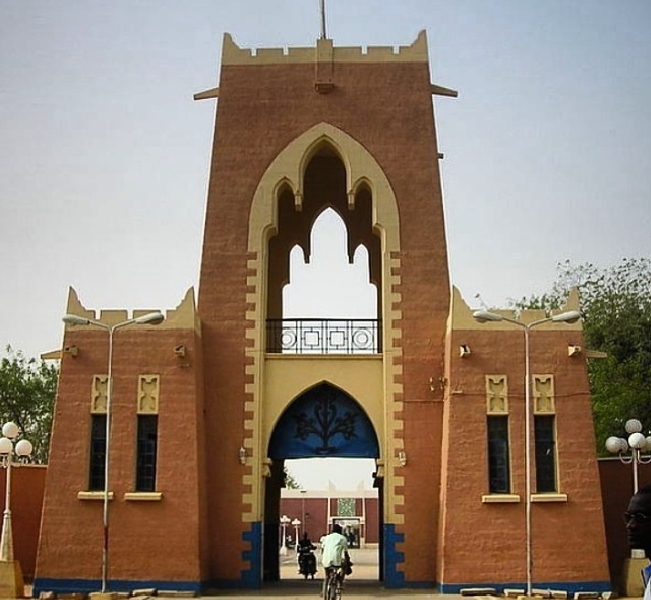To most outsiders, Nigerian Obas are figures of mystery and majesty—swathed in layers of velvet, coral beads, and ancestral symbolism. They sit atop golden thrones and preside over cultural festivals, wielding centuries-old authority with silent power.
But behind the public gaze and the palace gates lies a far more complex reality: one of ritual discipline, gender politics, spiritual burdens, family tensions, and the subtle loneliness of inherited divinity.
This feature takes you behind the veil—inside the private lives of Nigerian Obas, from the Ooni of Ife to the Alaafin of Oyo, the Oba of Benin, and lesser-known traditional rulers scattered across Yoruba, Igbo, Edo, and northern kingdoms.
Through verified reports, historical accounts, and palace insider details, we explore their daily routines, domestic arrangements, secret councils, and the psychological toll of being living symbols of cultural identity.
WHO IS AN OBA IN MODERN NIGERIA?
An Oba is more than a traditional ruler—he is a symbol of ancestral authority, a cultural custodian, and in some cases, a political influencer.
Key Characteristics:
- Often seen as a divine representative of a people or deity.
- Heads traditional councils.
- Oversees cultural, spiritual, and land matters.
- Holds significant ceremonial and symbolic power.
Prominent Examples:

Ooni of Ife (Oba Adeyeye Enitan Ogunwusi): Spiritual head of the Yoruba race.

Oba of Benin (Oba Ewuare II): Supreme leader of the Edo people.

Alaafin of Oyo (late Oba Lamidi Adeyemi III): Formerly one of the most authoritative Yoruba Obas.

Obi of Onitsha (Igwe Alfred Achebe): A key Igbo traditional ruler with pan-ethnic influence.
STRUCTURE AND FUNCTION OF A NIGERIAN PALACE
A traditional Nigerian palace is both a political institution and a spiritual center.
Physical Structure:

Yoruba Palaces (Aafin): Multiple courtyards (Ile Nla, Agbole, Ilofi), wives’ quarters, shrines.

Benin Palace: Centralized royal court, ancestral altars, ivory artifacts.

Northern Palaces: Walled complexes with Emir’s residence, council chamber (Kofa), and mosque.
Internal Divisions:
Private Wing (Ilofi or Inner Chamber): Reserved for spiritual rituals and royal reflection.
Audience Hall: For meeting chiefs, resolving disputes, and receiving guests.
Shrines/Altars: Dedicated to ancestral or deity veneration.
DAILY ROUTINE OF AN OBA
Obas follow structured routines blending tradition and governance.
Morning:
- Ritual cleansing and ancestral prayers.
- Offerings to deities or family shrines (e.g., Ogun, Orunmila, or royal ancestors).
- Dressing by palace attendants using coral beads, ofi cloth, or royal tunics.
Midday:
- Open court sessions (community dispute resolution).
- Meetings with chiefs, elders, and political visitors.
- Review of palace reports or development issues.
Evening:
- Private meetings or spiritual sessions.
- Royal family time (in some cases).
- Occasional community walkabouts or informal public engagement.
FAMILY STRUCTURE AND DOMESTIC LIFE
Obas often have complex family arrangements shaped by polygamy and tradition.
Wives (Oloris):
Senior Olori: Often oversees domestic coordination and palace etiquette.
Junior Oloris: Assigned quarters; attend ceremonial functions in rotation.
Public Role: Many are philanthropists, influencers, or cultural ambassadors.
Children:
- Usually educated in elite schools (often abroad).
- Many are shielded from public life during early years.
SPIRITUAL ROLE AND TRADITIONAL OBLIGATIONS
Obas serve as religious intermediaries between their people and the divine.
Responsibilities:
- Conduct seasonal festivals (e.g., Olojo, Igue, Oro).
- Preserve sacred relics and chants.
- Host spiritual rituals during drought, disease, or crisis.
Ritual Restrictions:
- May not eat in public.
- May be forbidden from marrying certain lineages.
- Must observe periodic seclusion (e.g., during coronation anniversaries).
COUNCILS, ADVISORS AND POWER DYNAMICS
Obas rule with a traditional cabinet, often composed of chiefs with hereditary titles.
Key Offices:
Bashorun: Prime advisor (Yoruba system).
Esama or Iyase: Political chief (Benin).

Otun/ Osi Chiefs: Oversee town affairs.
Iyalode: Senior female chief.
Power Dynamics:
- Chiefs can influence policy or palace appointments.
- Tension sometimes arises between younger Obas and older chiefs.
- Internal palace politics often decide royal succession or crisis response.
ROYAL ECONOMY: HOW OBAS SUSTAIN PALACE LIFESTYLES
Though state governments provide monthly stipends, many Obas have personal income sources.
Sources of Wealth:
- Land royalties (especially in urban areas like Lagos, Ibadan, Abeokuta).
- Chieftaincy title donations.
- Private businesses (e.g., hotels, farming, oil).
- Donations from billionaires and politicians.
Controversies:
- Some critics argue that Obas commercialize chieftaincy titles.
- Others defend it as a necessary tool for palace maintenance.
MODERNITY IN ROYAL SPACES
Obas today must balance tradition with relevance in a fast-changing Nigeria.
Modern Features:
- Social media usage (e.g., Ooni’s Instagram outreach).
- Participation in UN events or diaspora summits.
- Launching foundations for youth, health, and education.
Challenges:
- Pressure to endorse political candidates.
- Balancing public expectations with spiritual duties.
- Criticism for material opulence or flashy coronation ceremonies.
POLITICAL NEUTRALITY AND STATE RELATIONS
Though largely ceremonial in the constitution, Obas influence political climates.
Areas of Political Impact:
- Mobilizing votes during elections (soft endorsements).
- Mediation in ethnic or community conflicts.
- Securing federal/state projects through influence.
Legal Standing:
- Nigeria’s 1999 Constitution recognizes traditional institutions without executive powers.
- States maintain chieftaincy affairs ministries to regulate Obas.
ROYAL SCANDALS AND PUBLIC CONTROVERSIES
Despite their prestige, Obas are not immune to public criticism or scandal.
Common Issues:
- Allegations of land grabbing or misappropriation of community funds.
- Disputes over controversial titles conferred on celebrities or politicians.
- Marital disputes and public resignations of queens.
Notable Cases:

Olori Naomi’s exit from the Ooni’s palace (2021) sparked debates on palace life vs personal freedom.
Ijebu Igbo succession crisis lasted over 10 years with legal battles.
SUCCESSION, DEATH, AND MOURNING PROTOCOLS
The departure of an Oba is a deeply ritualized process.
Succession:
- Most Yoruba monarchies rotate between ruling houses (e.g., Giesi, Osinkola in Ife).
- Elders and kingmakers screen candidates through genealogy and spiritual eligibility.
Death:
- Not immediately announced in some cultures (e.g., Benin, Oyo).
- Rituals include seclusion, ancestral rites, and spiritual handover.
- Mourning could last weeks before a new Oba is chosen.
REFLECTION: THE REALITIES OF ROYAL LIFE TODAY
While Obas remain revered figures, their lives are far from romanticized perfection.
Key Realities:
- They carry spiritual burdens unknown to the public.
- Their families often live under tight scrutiny and limited privacy.
- They walk a fine line between ancient custom and modern relevance.
Despite the regalia and reverence, many Obas face internal palace politics, mental isolation, and public expectations that outweigh their legal authority.
In the end, to be an Oba is to live above, beyond, and sometimes outside life. Your jokes must not offend. Your tears must be hidden. Your fears must be veiled in divinity.













Leave a comment